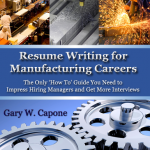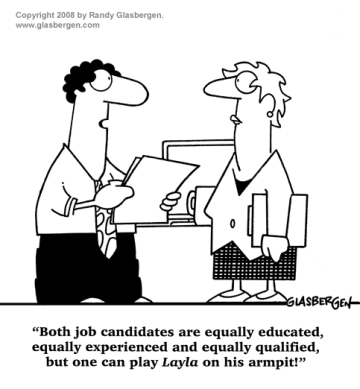Experienced professionals often struggle with deciding how many of their jobs to list and how much detail to provide for each. This can be a tough decision. On a two page resume, you won’t have enough room to write in detail about everything.
You should provide at least the last ten years in detail. Hiring managers will be much more interested in your recent experience, so you want to prioritize this. You can summarize your experience further back if you don’t go into detail. For example, you could include a line like:
Progressed from entry level production supervision to materials management, including roles as production controller and logistics manager.
This line would take the reader from the start of your career up to the place on the resume where the detail starts, a materials management position. In this example, the progression is fairly typically, starting in production and shifting over to materials through a serious of positions. Most materials professionals will recognize this career path and won’t need additional information.
If you have been with a single company for more than 10 years, you should show the entire progression with them. Stability with a single company is a very positive sign on a resume. It shows the person was successful through the progression of promotions. List the full progression, since it demonstrates a strong pattern of success. For positions a long time ago, you can summarize the experience by listing the jobs, for example:
- Logistics Manager December 1992 to July 2000
- Production Controller August 1988 to December 1992
- Shipping Supervisor March 1985 to August 1988
- Production Supervisor June 1980 to March 1985
This shows the progression without any detail, just the titles and dates. From this point forward, the resume would show the detail of the materials management experience. You could even consolidate the summary further:
Held production supervision, production control and logistics management positions from June 1980 to July 2000.
This is a short summary providing enough information for a hiring manager to understand how you got to the materials role.
Job seekers who return to school in the middle of their careers have a different challenge. Getting a degree can transform a career, allowing a person to switch paths completely. In this case, the experience prior to completing the degree may be irrelevant. For example, consider a person who worked in hourly production roles and completed an IT degree. The person upon graduation takes a job as a network administrator and moves along an IT career path from that point forward. In this case, there’s little benefit to the experience prior to completing the degree, and it can probably be omitted, especially if it is more than ten years ago.
For older workers, there is a lot of concern about age discrimination. Listing every job back to start of a career will help ensure hiring managers know exactly how old you are. There’s no reason to highlight this. List the last 15 to 20 years, giving significant detail to the last 10.
The main reason you want to omit or summarize your experience from more than 10 years ago is it allows you to focus on the last 10 years in much greater detail. Your recent accomplishments are your biggest selling points, and you want to focus on them.





